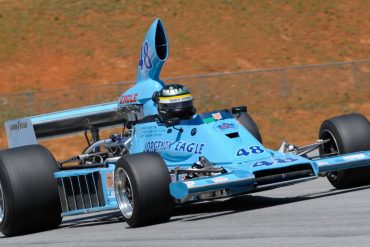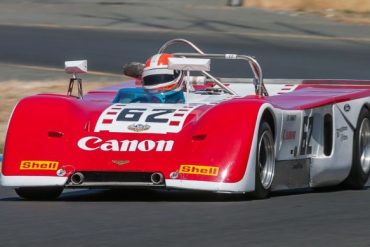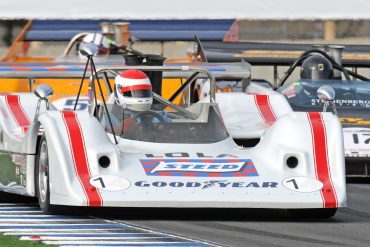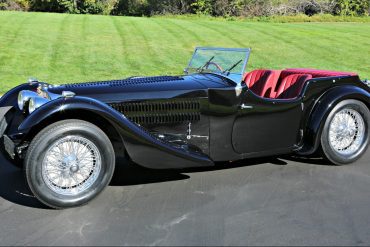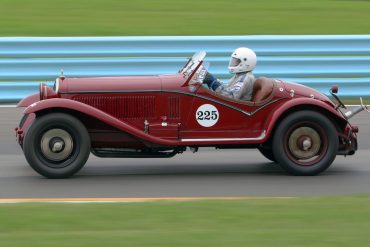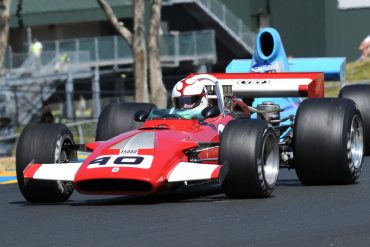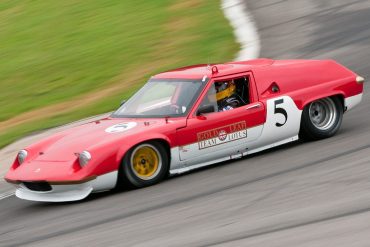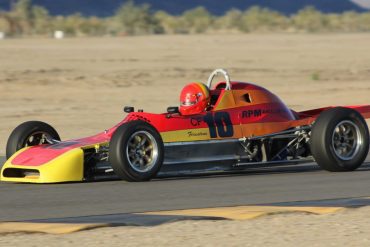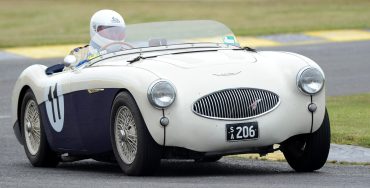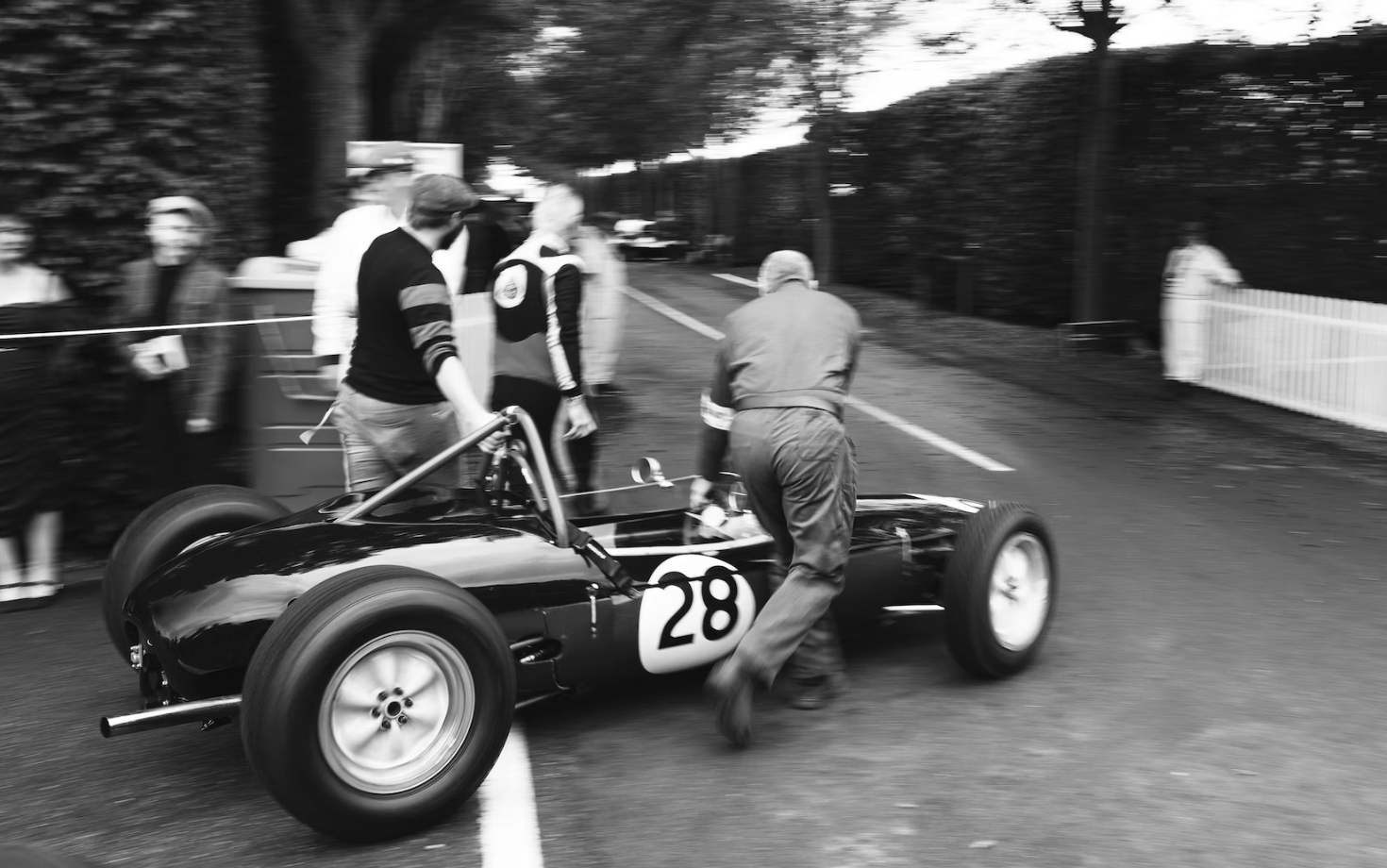Vintage Racecar Market Guide & Tips
Market Reports Created By Valuation Experts & Brokers
To get a complete perspective most people recommend checking out auction house databases, and vintage racing car clubs, as they often have market reports, price guides, and sales listings that can give you insights into the current trends, pricing, and demand for vintage race cars. Or, you can check out our annual price and market guides and what to expect to pay for vintage race cars, including condition guides and much more. Buying from the podium is a good strategy if you want to actually race the car. Even here, you have to make sure all of the podium-winning pieces are still on it. Ideally, not only will the car wear all the trick parts, but the previous owner will share the setup and prep strategies that made the car a success. A car like this will cost significantly more than the average race car–somewhere up to the sum of its parts. Better yet, though, a lot of these cars, especially if they come with spares, sell for half or less than the total construction costs–and usually still less than a street or restored version. Every other race car should be considered a project car and purchased for a project car price. A car that wasn’t a front-runner or hasn’t run in a while will likely be uncompetitive, unreliable and maybe even unsafe. Expect to completely go through everything on the car.
Race Car Values & Market Guides
Despite what the sellers often think, most race cars are not worth anywhere near the sum of their parts. The only cars worth a lot are famous ones driven by famous drivers–and with spotless documentation proving that history. Almost all significant, famous cars were insignificant and uncompetitive at some point in their past, and many were parted out to raise cash for the next one. If you’re chasing a high-dollar car with history, do your research. Be very suspicious and take your time. If you find a truly historic car, expect to pay top dollar–more than the sum of its parts and more than a restored version.
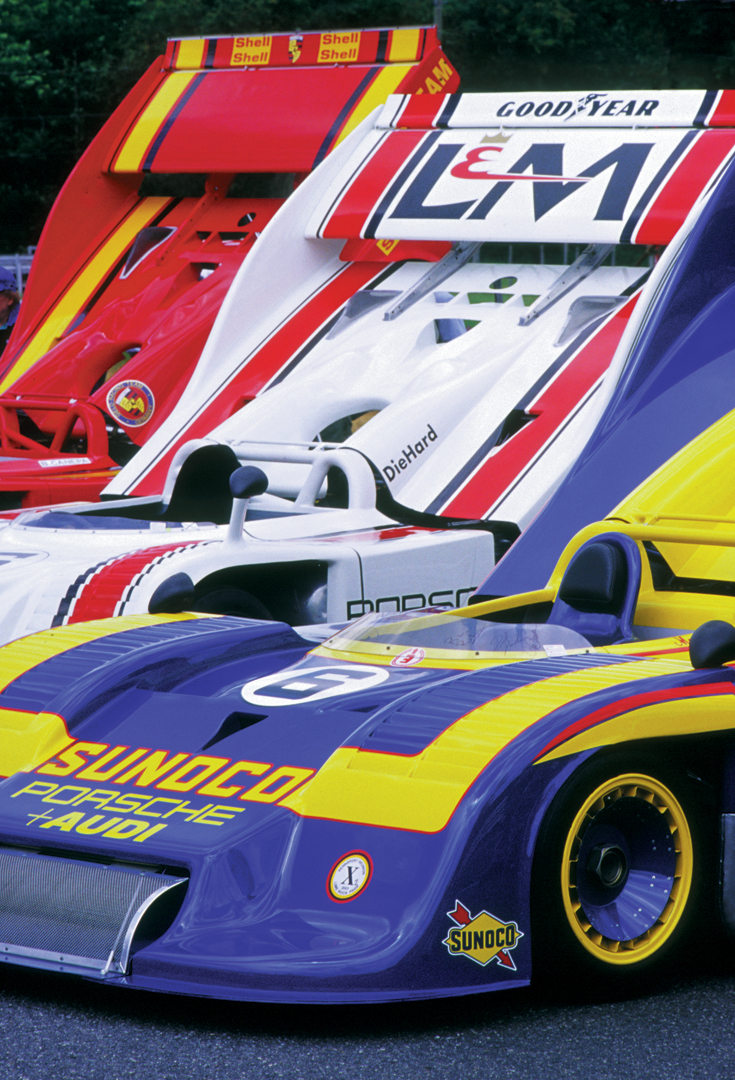
Want to Try Vintage Car Racing?
Vintage car racing is a motorsport discipline that offers an immersive dive into automotive history, often described as a real-life version of childhood slot car racing fantasies. It isn't as daunting to get involved in as one might think, and the community is known for its camaraderie and willingness to help newcomers.
The Sportscar Vintage Racing Association (SVRA) hosts events that feature a wide range of historic cars, from 200 MPH Indy and Formula 1 cars to classic Jaguars and Porsches. These events take place at legendary tracks across the United States, including Watkins Glen, Indianapolis Motor Speedway, and The Circuit of the Americas, among others. They offer an opportunity to see these classic machines not just as static displays but in action, doing what they were built to do.
The world of vintage racing has evolved with new regulations in professional racing, creating a clearer separation between racers and the construction of their cars. For example, it's no longer possible to build your own IMSA race car from a street car for professional events like the Rolex 24 At Daytona; instead, racers must purchase a homologated race car from the manufacturer or an authorized agent.
For those who want to engage with vintage racing, there are essentially two paths. One can either join the thrill of racing at high speeds on long tracks, or one can opt for the more social and casual aspect of the sport, which many find just as fulfilling. Vintage racing is recognized for its fun atmosphere, allowing drivers to enjoy classic cars in a competitive but friendly environment. It's a way to spend leisure time that combines passion for classic cars with the excitement of track racing.
A unique aspect of vintage racing is that it's one of the few motorsports where amateur drivers can compete in a variety of historic cars, from Formula 1 vehicles to historic stock cars. Races can feature cars from as far back as the 1930s to the 1970s and 1980s, with values ranging from $8,000 to $30 million, catering to a wide spectrum of enthusiasts and collectors.
Buying A Vintage Race Car? Here Are Some Tips & Important Considerations.
Know how you plan to use the car. First, what are you going to do with your car? Are you actually going to race it? Do you want to take it to car shows? Maybe even drive it on the street from time to time? Or just look at it in your garage or shop? And why do you want to do these things with a race car instead of a restored or restomodded classic?
Valuation varies broadly with race cars, particularly for the more workaday former SCCA cars as compared to high-dollar, high-provenance cars. Check out our market reports and price guides and understand what budget and quality car you are going for and how you are going to use it.
Find an expert who knows the market well. Enlist an expert's aid, specifically an appraiser with the skills to identify potential issues with the car and assess its authenticity to the period (though not necessarily originality, as racing components are often replaced). Established race car shops with expertise in the brand you're interested in can provide insights into the car's condition and maintenance needs. Just as you would have a street car inspected before purchase, the same applies here.
History matters. Kind of. The history of a race car can add to its value, but it doesn't always correlate with performance. A car with a celebrated past may fetch a higher price, but it doesn't guarantee current race readiness. For instance, a car with a notable track record indicates quality build, but if it hasn't been maintained or updated, its value in terms of performance might not justify a premium price. The same goes for a storied race car in need of significant work to be competitive again.
Don't compare to production car prices. Avoid directly comparing race car prices with their street-legal versions. Valuation guides might not be as reliable for race cars, and prices can be higher or lower than their road-going equivalents. For example, while a pristine 1999 Miata may be listed at $24,800, a competitive Spec Miata race car might cost $40,000. If you're not seeking a collector-quality street car or a top-tier track racer, a more modestly priced option could be a sensible starting point.
Spare part prices and hurt... a lot. Lastly, don't overlook the expense of spare parts, which you will require in abundance. The more spares that come with the car, the better, as this will be a significant aspect of your ongoing investment in the car.
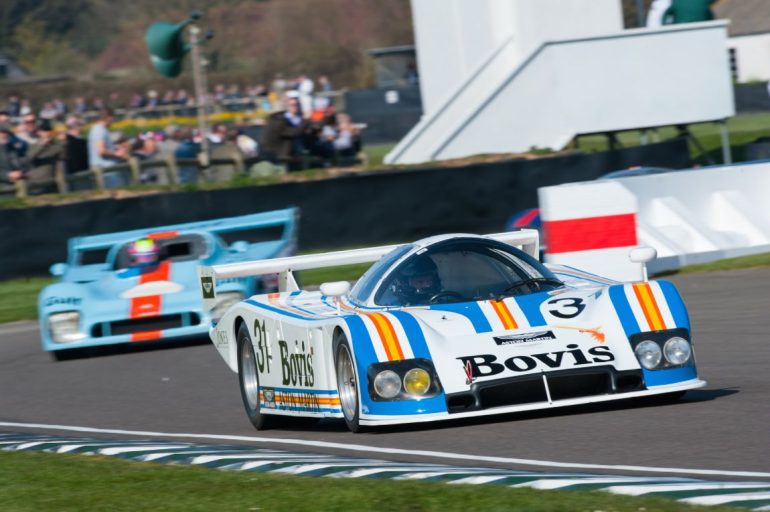
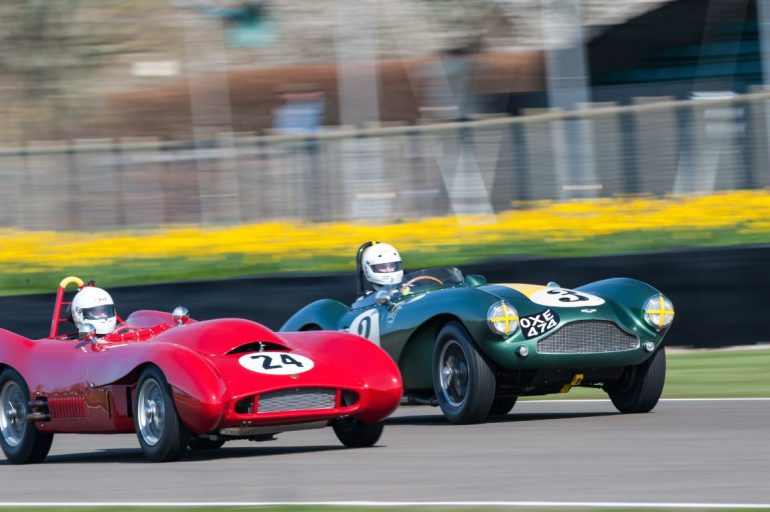
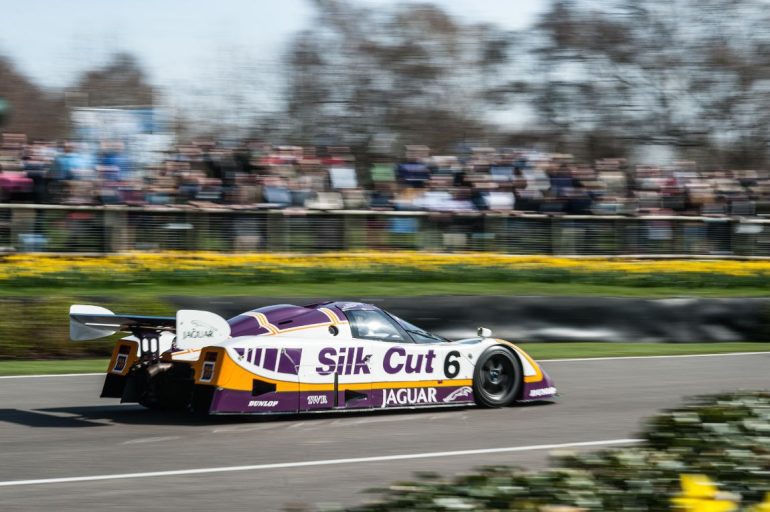
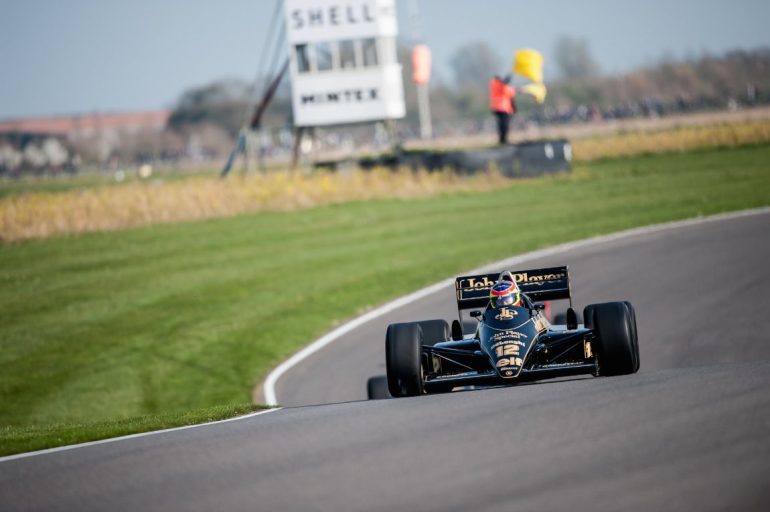
Check out these Vintage Racing Groups.
Vintage racing doesn’t fall under one blanket organization for the entire country. Some groups sanction events from coast to coast, while others are more regional in nature. And with each turf comes a unique vibe, mission statement and rule book–and one group’s regulations can allow cars prohibited by another’s.
Classic Sports Racing Group / csrgracing.org
Corinthian Vintage Auto Racing / corinthianvintagerace.com
Heartland Vintage Racing / heartlandvintageracing.com
Historic Sportscar Racing / hsrrace.com
Midwestern Council of Sports Car Clubs / mcscc.org
Pittsburgh Vintage Grand Prix Association / pvgp.org
Put-in-Bay Road Race Heritage Society / pibroadrace.com
Rocky Mountain Vintage Racing / rmvr.com
Society of Vintage Racing Enthusiasts / sovren.org
Southwest Motorsport / swms.org
Sports Car Club of America / scca.com
Sportscar Vintage Racing Association / svra.com
Vintage Auto Racing Association / vararacing.com
Vintage Automobile Racing Association of Canada / varac.ca
Vintage Drivers Club of America / vintagedrive.com
Vintage Racer Group / vrgonline.org
Vintage Racing Club of BC / vrcbc.ca
Vintage Sports Car Drivers Association / vscda.org
Vintage Sports Car Club of America / vscca.org
Vintage Sports Car Racing / vscr.org
Meet the VMC / the-vmc.com


